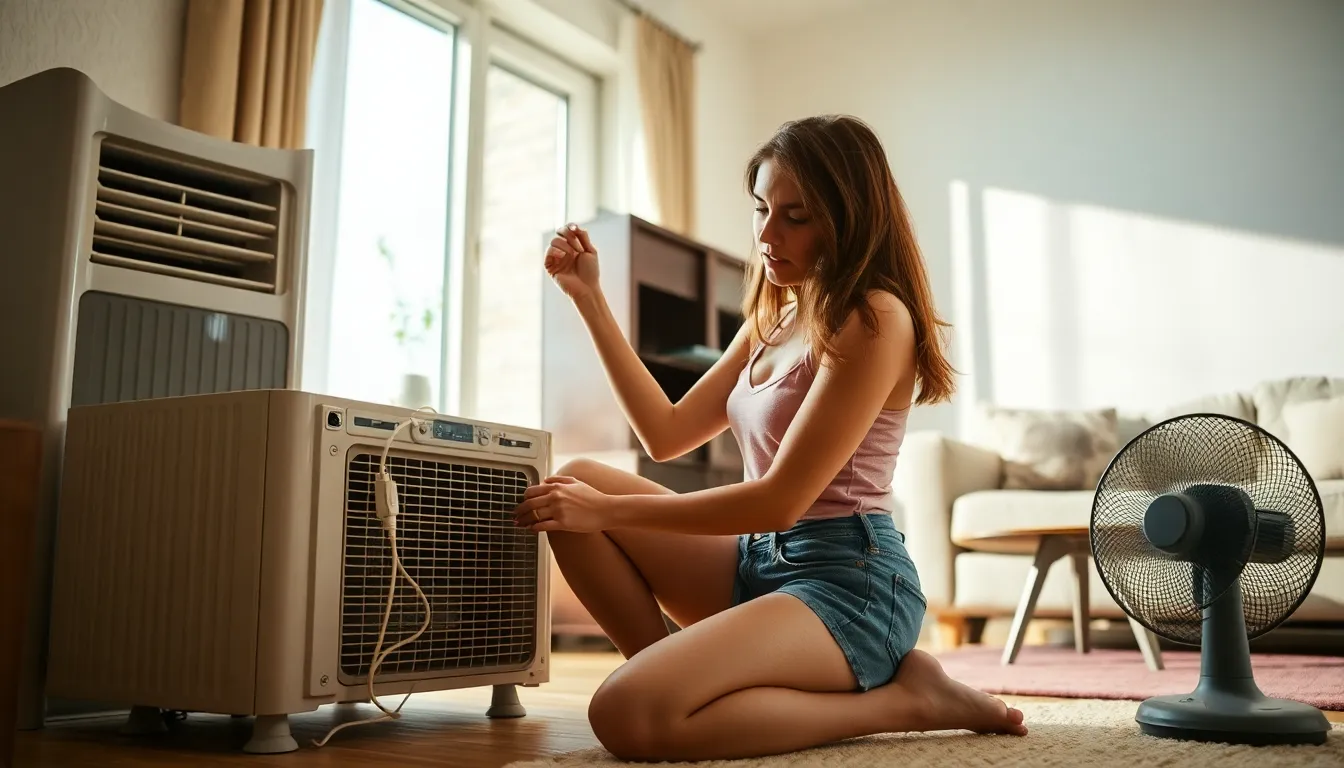Table of Contents
ToggleSelling a VA home can feel like a rollercoaster ride—thrilling yet a bit nerve-wracking. After all, who doesn’t love the idea of cashing in on their investment? But before you start dreaming of that beach vacation, it’s crucial to understand the ins and outs of your eligibility for future VA loans. Spoiler alert: it’s not as straightforward as piecing together a jigsaw puzzle with a few missing pieces.
Understanding VA Home Loan Eligibility
Eligibility for VA home loans holds significant importance following the sale of a VA home. Knowing the requirements can simplify the path to future benefits for veterans and active-duty service members.
Overview of VA Home Loans
VA home loans offer desirable financing options, catering specifically to veterans and active-duty personnel. These loans provide advantages, such as no down payment and competitive interest rates. Funding for these loans occurs through private lenders, with a guarantee from the Department of Veterans Affairs. Such backing minimizes lending risks and enhances access to homeownership.
Key Eligibility Requirements
Eligibility for VA loans relies on specific criteria, including service length and status. Veterans must demonstrate satisfactory service time, typically requiring a minimum of 90 consecutive days of active duty during wartime or 181 days in peacetime. Additionally, discharge status matters; individuals must have received an honorable discharge. Lenders may also consider income and credit history, ensuring applicants possess the financial capability to manage monthly mortgage payments.
Selling a VA Home
Selling a VA home comes with unique implications and motivations. Understanding these factors is crucial for veterans and active-duty service members.
Implications of Selling
Selling a VA home can affect the eligibility for future VA loans. A veteran retains entitlement, depending on the remaining balance after the sale. If significant profits arise from the sale, the entitlement can be restored fully for future home purchases. Alternative options include using the proceeds for refinancing or buying another home. Difficulty arises if the property sold was the only residence tied to the VA loan entitlement, limiting access to future benefits. Thus, clarity on the impact of selling aids in making informed decisions.
Common Reasons for Selling a VA Home
Various reasons prompt veterans and service members to sell VA homes. Job relocations often require a change in residence. A growing family might necessitate a larger living space. Financial pressures can drive the decision to downsize or sell for profit. Health concerns sometimes influence the choice to move to more suitable accommodations. Each circumstance reflects the diverse needs of veterans navigating life changes.
Eligibility After Selling a VA Home
Understanding eligibility after selling a VA home is essential for veterans and service members looking to secure future financing. This knowledge allows them to make informed decisions regarding their next home purchase.
Reusing VA Loan Benefits
Veterans can reuse VA loan benefits after selling their home. Remaining entitlement plays a significant role in determining accessibility for future VA loans. If a veteran sells their home and profits from the sale, this action can increase their available entitlement for a new purchase. Each veteran’s situation varies; conditions such as the amount realized from the sale and whether the entitlement was restored impact future loan eligibility. It’s crucial for individuals to check their Certificate of Eligibility for accurate entitlement information.
Impact of Sale on Eligibility
Selling a VA home directly affects eligibility for subsequent VA loans. Retaining full entitlement enables veterans to qualify for additional VA loans without needing a down payment. Should they sell their only home tied to the VA loan, they risk limiting future benefits. The timing of the sale also matters; VA eligibility might shift based on how long it’s been since the sale. Veterans must consider various factors to understand how the sale influences their overall eligibility for future financing.
Steps to Maintain Eligibility
Maintaining eligibility for future VA loans after selling a VA home involves careful consideration of specific requirements and conditions. Understanding these steps can facilitate a smoother transition into future home purchases.
Documentation Required
Veterans must gather essential documents to support their eligibility claims. These include a Certificate of Eligibility (COE), which confirms entitlement, and a copy of the sales contract. Records of the sale, including closing statements and any profit documentation, also need to be available. Tax returns may serve as proof of income during loan processing. Accurate documentation ensures seamless submission for future loan applications, making the process more efficient.
Timeframe for Reapplying
Reapplying for a VA loan typically requires strategic timing. Waiting at least 30 days post-sale allows veterans to assess their eligibility based on the retained entitlement. Full entitlement restoration occurs if a veteran profits significantly from the sale. However, veterans must consider market conditions and personal circumstances when planning to reapply. Engaging with a knowledgeable lender can provide insights into timelines and the impact of market trends on eligibility.
Conclusion
Understanding eligibility after selling a VA home is crucial for veterans and service members. By grasping the implications of their sale on future VA loan benefits, they can navigate the complexities of home financing with confidence. Retaining entitlement and gathering necessary documentation can significantly ease the process of reapplying for a VA loan.
Engaging with a knowledgeable lender can provide insights tailored to individual circumstances, ensuring that veterans make informed decisions. As life changes arise, being proactive about eligibility can open doors to future homeownership opportunities, allowing veterans to continue benefiting from the advantages of VA loans.







